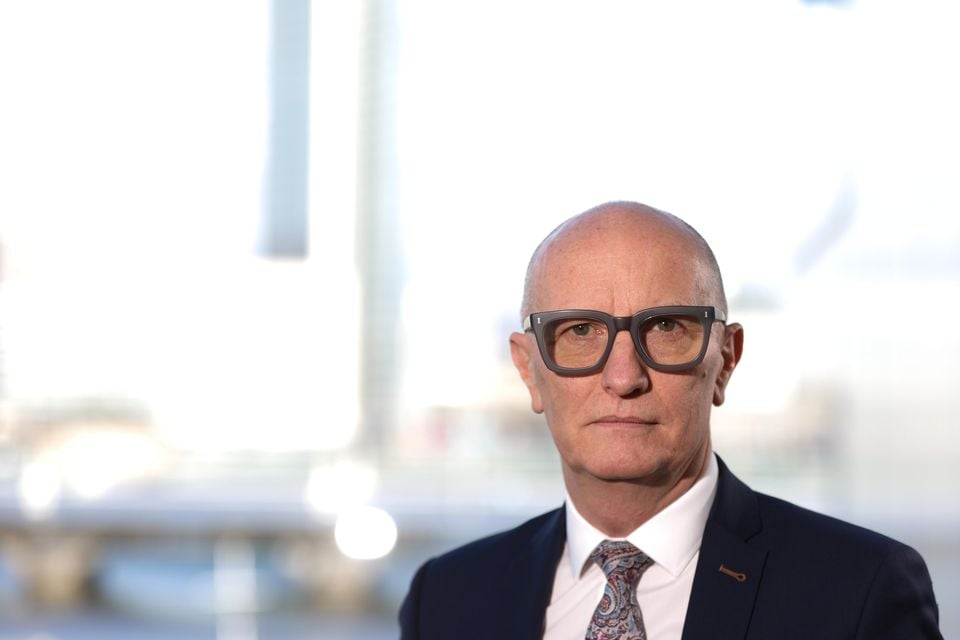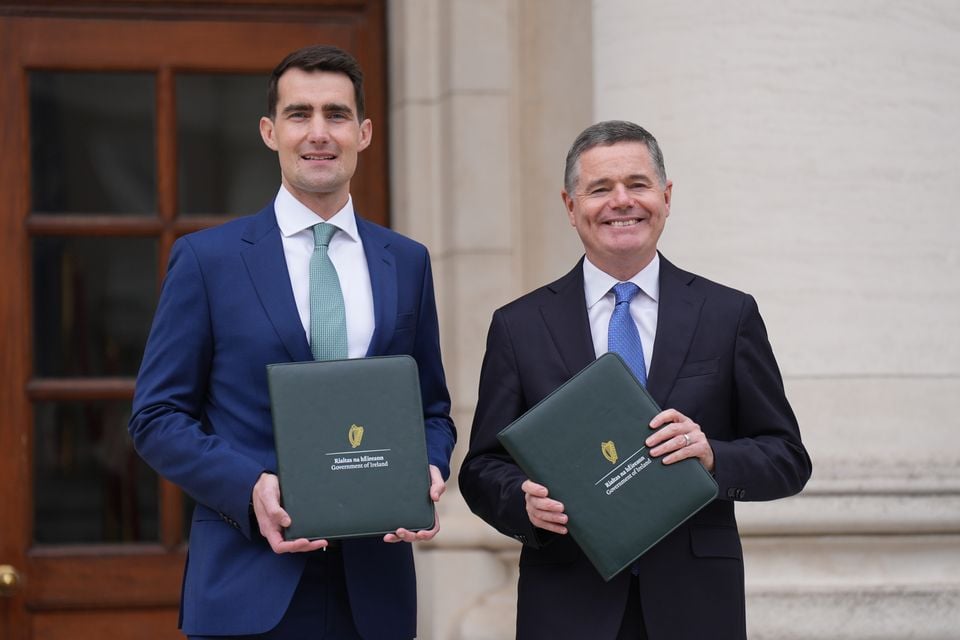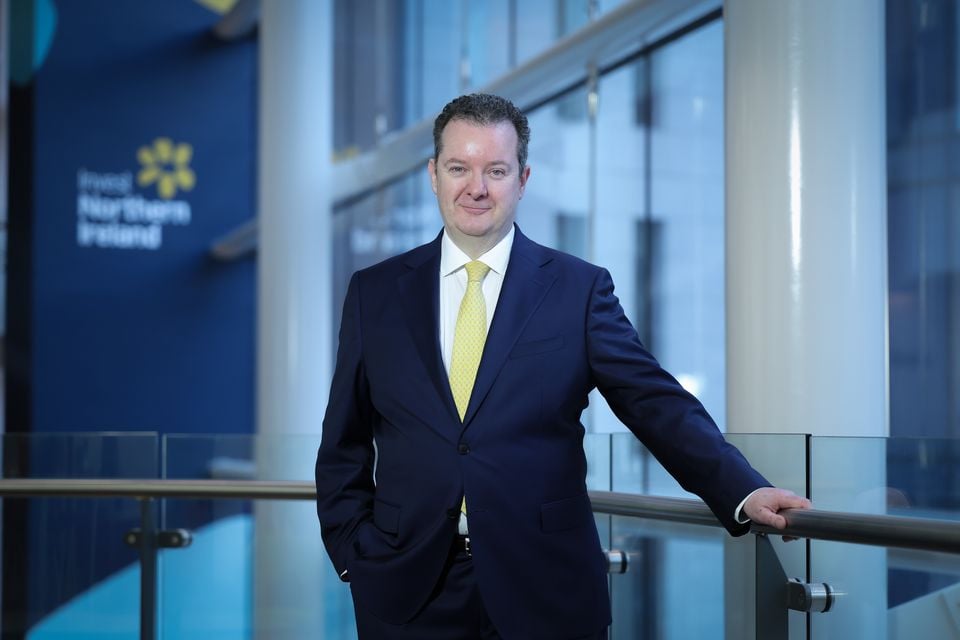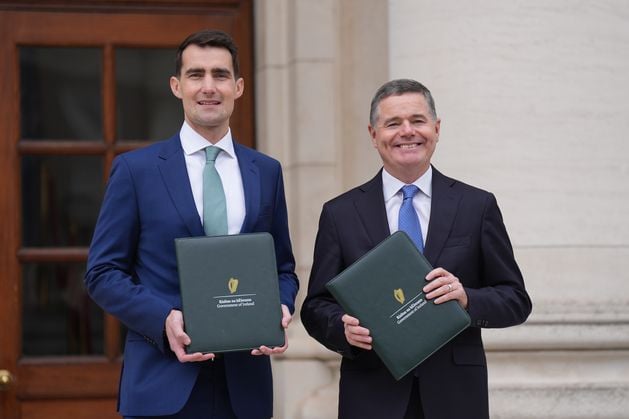Speaking to Dáil Éireann, Irish finance minister Paschal Donohoe confirmed the introduction of a reduction in VAT for hospitality (excluding hotel rooms) from 13.5% to 9%, while Jack Chambers, the public expenditure minister, announced €12.2bn to be spend on expanding water and wastewater services.
Hospitality Ulster expressed concern that the VAT cut harms Northern Ireland’s competitiveness, while Build Homes NI, a group of building firms advocating major investment in NI’s wastewater said the Irish government’s spending will cause more local housebuilders to “look for opportunities” south of the border.
Colin Neill, the chief executive of Hospitality Ulster, said that, as the only part of the UK that shares a land border with the EU, the VAT differential has “a direct impact on local business”.
Hospitality businesses in Northern Ireland pay a VAT rate of 20%, as businesses do in the majority of sectors across the UK.
Ireland’s cut to VAT will have a major impact on money brought in via taxation, with some estimates saying it could cost the exchequer €681m in a full year.
Mr Neill said: “The Irish government’s decision to reduce VAT on hospitality from 13.5% to 9% on food once again highlights the growing competitive imbalance facing Northern Ireland’s hospitality and tourism industry.

Colin Neill
“Our hospitality sector operates under immense pressure from rising costs, staff shortages, and a 20% VAT rate that is one of the highest in Europe.
“With the Republic of Ireland now making this latest VAT reduction, Northern Ireland businesses will be placed at an even greater disadvantage when competing for visitors, events, and investment across the island.
“Northern Ireland is the only part of the UK sharing a land border with an EU member state. The VAT differential has a direct impact on local businesses, particularly in the border counties where competition with the Republic is strongest.
“The time for action has long since passed. The UK Government must recognise Northern Ireland’s unique position and act immediately to level the playing field by introducing a pilot VAT reduction for hospitality and tourism here.
“Hospitality is the cornerstone of our tourism offering, supporting more than 72,000 jobs and contributing £2bn annually to the local economy.
“If we are to sustain and grow this vital sector, decisive intervention is needed now to ensure Northern Ireland remains competitive within the all-island tourism market.”

Ireland’s Minister for for Public Expenditure Jack Chambers and Minister for Finance Paschal Donohoe (Niall Carson/PA)
Budget 2026 preview
Meanwhile, Mr Chambers said Dublin’s investment in water and wastewater services is necessary to ensure more homes are built in the Republic.
Build Homes NI was founded to advocate for investment in Northern Ireland’s wastewater services, describing issues with that infrastructure as the biggest barrier to building projects here.
Speaking recently to the Financial Times, the CEO of Invest NI Kieran Donoghue said a lack of wastewater infrastructure was the biggest barrier to firms being able to take advantage of Northern Ireland’s dual market access.
Mr Donoghue said: “Dual market access under the Windsor Framework is fundamentally a manufacturing opportunity and manufacturers need water in, water out.”

Invest NI chief executive Kieran Donoghue
Paul McErlean, a director at Build Homes NI, said: “It is forecast that within its next Price Control period NI Water will face a £2bn deficit because of its broken funding model.
“Consequently, Northern Ireland is facing a permanent wastewater crisis.
“The evidence is all around us – historically low levels of housebuilding; record levels of homelessness and accelerating rental costs that are pricing young people out of the housing market.
“Our waterways are being degraded by pollution and the economy is losing jobs and inward investment, particularly in the manufacturing sector which relies upon water connections.

Paul McErlean, founder of MCE, and Carl Daruvalla, chief executive of Cavendish
“Housebuilding is becoming increasingly difficult in Northern Ireland. Today’s announcement by the Irish government will only accelerate the trend for local housebuilders to seek out opportunities south of the border in the absence of suitable sites in their home market.
“This is a system-wide failure which demands a long-term, system-wide solution led by the NI Executive.
“Rather than let the issue drift until the next Assembly election, now is the time for the parties to bring forward credible proposals that begin to tackle the underlying problem of NI Water’s funding model.”
Other policies to promote homebuilding announced by the two Irish ministers included a 7% derelict property tax and €5 billion capital funding for housing delivery in 2026.
Elsewhere in Tuesday’s budget, the Irish government announced a €10 increase to the pension, jobseeker’s allowance and disability benefit, a rise in minimum wage of €0.65 per hour to €14.15 and an increase to carbon tax on auto fuels.
The budget also contained a multiyear commitment of €3m annually to fund academies for League of Ireland football teams.
The budget package is worth €9.4bn overall, and the Irish government expects the economy to add 63,500 more jobs in the next year.
